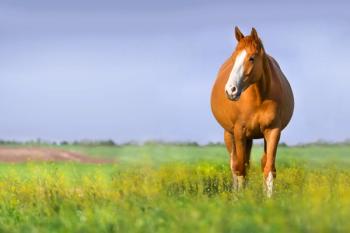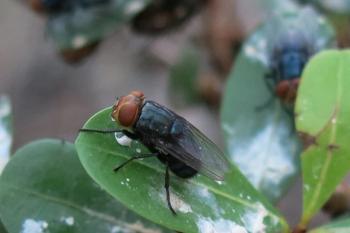
NAHMS horse data counters other reports
Rockville, Md.-The National Animal Health Monitoring System (NAHMS) Equine '98 study deviates from prior scientific reports of Salmonella and the U.S. horse population, namely because of the horses it sampled, reports the U.S. Department of Agriculture.
Rockville, Md.-The National Animal Health Monitoring System (NAHMS)Equine '98 study deviates from prior scientific reports of Salmonella andthe U.S. horse population, namely because of the horses it sampled, reportsthe U.S. Department of Agriculture.
Of note is that the NAHMS Equine '98 traced lower levels of fecal sheddingof Salmonella in horses than previously reported in veterinary literature.Of greater note, though, was the NAHMS study sampled horses in a populationnever before studied.
"The data from NAHMS looks at the prevalence of shedding in thefeces of Salmonella and the horse population in general versus trying toestablish the status of any given animal in that population," saysDr. Josie Traub-Dargatz, professor at Colorado State University who wasinvolved in writing the report.
Prior to this study, no research had ever closely examined the generalpopulation, instead focusing on horses at veterinary hospitals, which aredifferent from the general population, according to Traub-Dargatz.
"Lots of things happen to those horses that come in (to the hospital)for lameness (for example)," says Traub-Dargatz. "They have beenhauled and been around other horses that the general population may nothave been."
Equine practitioners, who are dealing with a herd of horses, can usethe data from NAHMS to determine whether a single horse in the herd whichis exhibiting signs of diarrhea from Salmonella signifies a Salmonella problemin the entire herd. If you are looking to establish the infection statusof a given horse, you would sample it multiple times, according to Traub-Dargatz.
Read the full story by Senior Associate Editor Stephanie Davis in theAugust issue of DVM Newsmagazine.
For more information on NAHMS or the Equine '98 study, contact Centersfor Epidemiology and Animal Health at (970) 490-8000; e-mail
Newsletter
From exam room tips to practice management insights, get trusted veterinary news delivered straight to your inbox—subscribe to dvm360.




